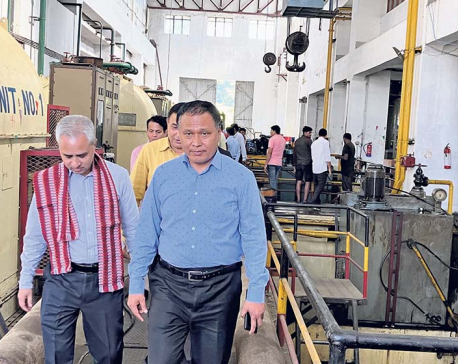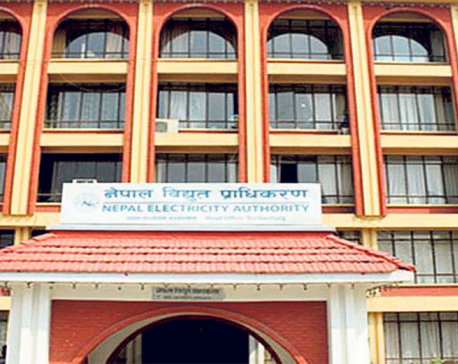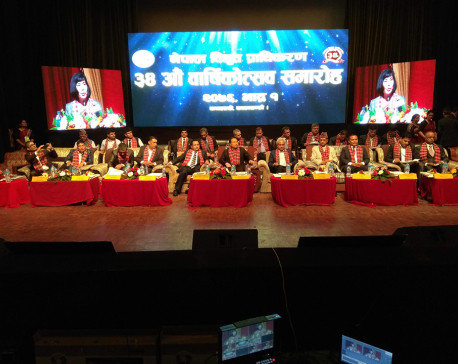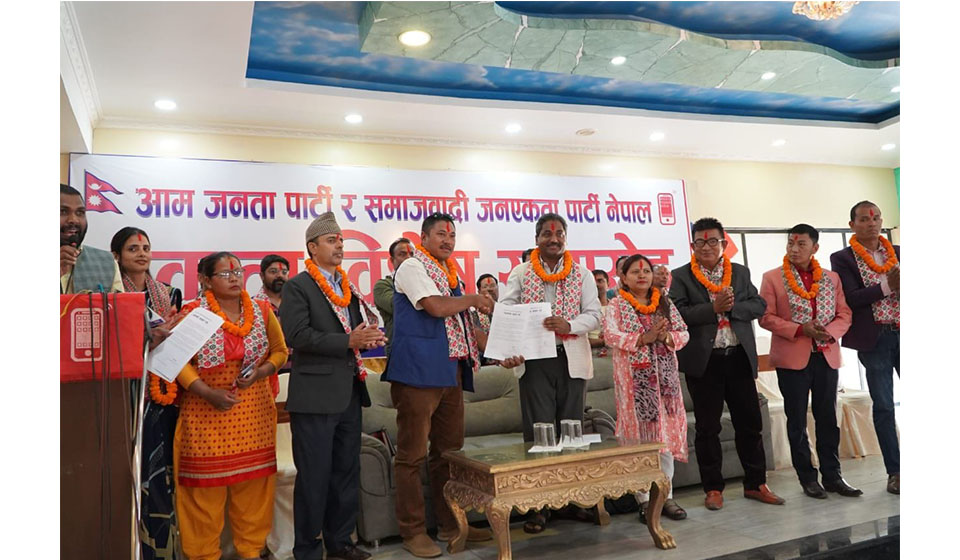
OR
51 EV charging stations launched simultaneously across the country
Published On: September 6, 2023 08:00 PM NPT By: Republica | @RepublicaNepal
_20230506072433.jpg)
KATHMANDU, Sept 6: Nepal Electricity Authority (NEA) has put into operation 51 charging stations for electric vehicles (EVs) built at various locations across the country. Organizing a program in Kathmandu on Wednesday, the NEA officially launched the charging stations across the country.
Minister for Energy, Water Resources and Irrigation Shakti Bahadur Basnet and Secretary Dinesh Kumar Ghimire jointly inaugurated a rapid charging station set up at Nepal Police Club, Bhrikutimandap on Wednesday.
Speaking at the program, Minister Basnet said that many charging stations have been put into operation across the country to minimize the impact of fossil fuel on climate change that has been increasing recently. He said that in order to promote the use of EVs, which has been increasing in Nepal recently, the government is still working for the expansion of charging stations nationwide. "Today, we have formally inaugurated charging stations in 51 different locations across the country. This is just the beginning," he said.
Such charging stations have been constructed alongside the main highways, busparks and big cities of all seven provinces. These facilities have been constructed under the Electric Vehicle Charging Infrastructure Development Project with investment of NEA, concessional loan from the Asian Development Bank and technical assistance from the Norwegian government.
The charging stations were constructed with an investment of around Rs 400 million. Big buses, micro buses, trucks, pickup vans and cars can be charged in 26 of the charging stations while big and small cars can be charged in 25 stations.
On the occasion, Minister Basnet described the operation of the 51 charging stations as an important step towards sustainable development of the country through reduction in carbon emissions and the adverse impact of climate change by means of consumption of clean energy.
Stating that the government is working towards policy and legal provisions for the promotion of electric vehicles, he said the investors are being enticed to manufacture EVs in the country itself.
Energy Secretary Ghimire said the transport sector is a key area to increase domestic consumption of electricity and the use of EVs will help boost per capita energy consumption.
NEA Executive Director Kulman Ghising said the charging stations have been set up for promoting EVs. Stating that EVs are 15 to 20 times cheaper than petrol-operated vehicles, he said use of EVs will also make a positive contribution to the foreign currency reserve of the country.
He said that the charging stations will help in the campaign to increase the consumption of electricity produced in Nepal. "We are constantly emphasizing on electricity consumption, we have brought 51 charging stations into operation across the country to facilitate it," he said, "Eleven more charging stations are under construction."
Addressing the program, he also said that the policy amendment has been done to facilitate the private sector for the construction of charging stations. "Now it is no longer possible for the government alone to invest in all areas. We have planned to facilitate the private sector in its construction," he said, "We have started the process of legal facilitation for the construction of charging stations for the private sector." He also shared on the occasion that the NEA is going to install 500 more charging stations across the country.
Chief of ADB South Asia Energy Division, Sujata Gupta said transport is an important sector for reducing carbon emissions and stressed on construction of infrastructures that promote the use of electric vehicles.
It will cost 70 paisas per kilometer for charging a car, 80 paisas for charging SUVs, 90 paisas for charging micro bus and Rs 1.20 for charging a bus. Depending on the battery capacity of the vehicles available in Nepal, it takes at least half an hour to one hour for fully charging a vehicle.
Each charging station is equipped with a 142 kilowatt capacity charger, a 50 kVA transformer for power supply and an online billing system. Fast charging 60/60 KW DC and 22 KW AC chargers have been placed at the charging station.
With this, three vehicles including a big bus can be charged simultaneously. A contract was signed with Wangwang Digital Energy Corporation Limited, Jiangsu, China for Rs 377,955,000 (excluding tax) for the construction, supply, installation, testing, operation and maintenance of the charging stations.
The maintenance of the charging stations will be done by the contractor company for five years since the beginning of operation. The software of the charging station will be kept in the authority’s data center.
All 51 stations will be controlled from Kathmandu. After charging the vehicle, the customer can pay the bill through QR code and mobile app.
The NEA said 51 rapid charging stations, including two in Dharke of Dhading, one each at Chitwan, Mugling and Pokhara bus parks and four in Kathmandu have come into operation from Wednesday.
You May Like This

NEA to modernize Gandak hydropower station, Rs 420 million needed
KATHMANDU, Nov 13: Nepal Electricity Authority (NEA) is going to rehabilitate and modernize the 15 MW Gandak hydropower plant located... Read More...

Transition is a must
In the midst of every crisis, lies a great opportunity and every crisis adds courage. The world is dealing with... Read More...

NEA targets to bring down power leakage to 14%
KATHMANDU, Aug 19: Nepal Electricity Authority, the state power authority of Nepal, celebrated its 34th anniversary on Sunday in Kathmandu. ... Read More...
Just In
- Sunkoshi-Marin Diversion Project’s tunnel construction nears completion, breakthrough scheduled for May 8
- Govt tightens security arrangement for Third Investment Summit 2024
- Pesticide residue found in vegetables in Nepalgunj
- Aam Janata Party and Samajwadi Jana Ekata Party merge
- 1,600 participants confirmed for Nepal Investment Summit
- Ilam-2 by-elections held peacefully, vote count likely to start tonight
- NEA schedules five-day power cut across Kathmandu Valley for underground cable installation
- Hundreds of passengers including foreign tourists in distress as poor visibility halts flights to and from PRIA








-1200x560-wm_20240427144118.jpg)







Leave A Comment